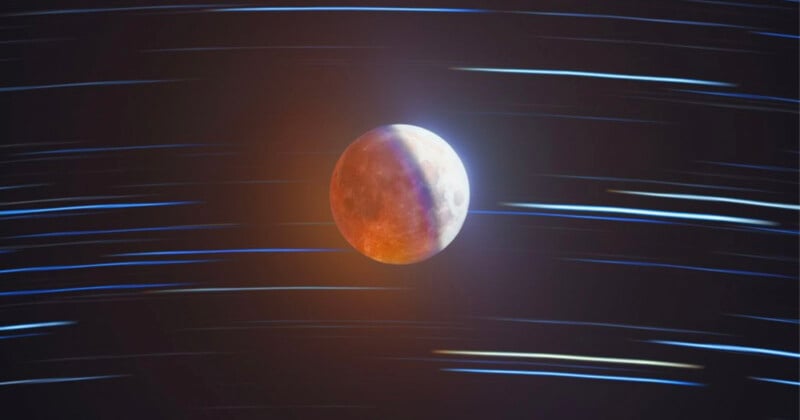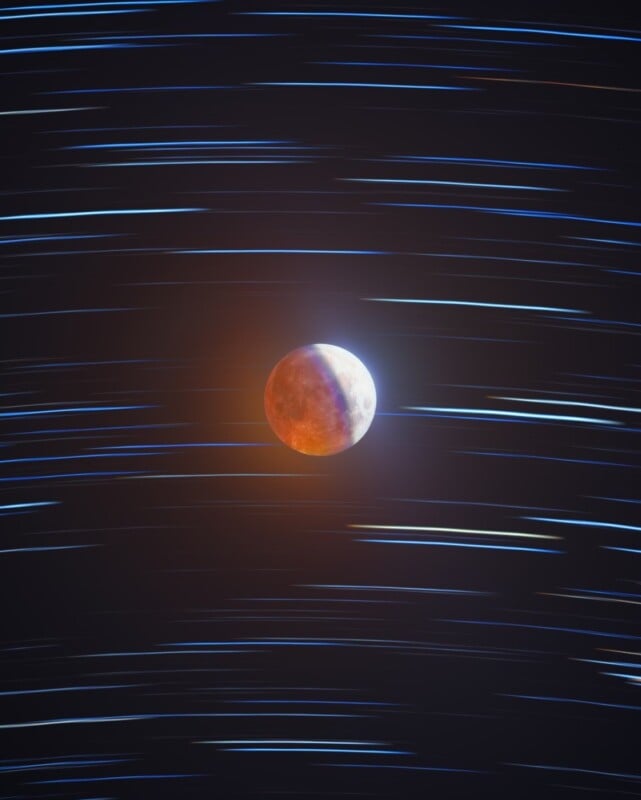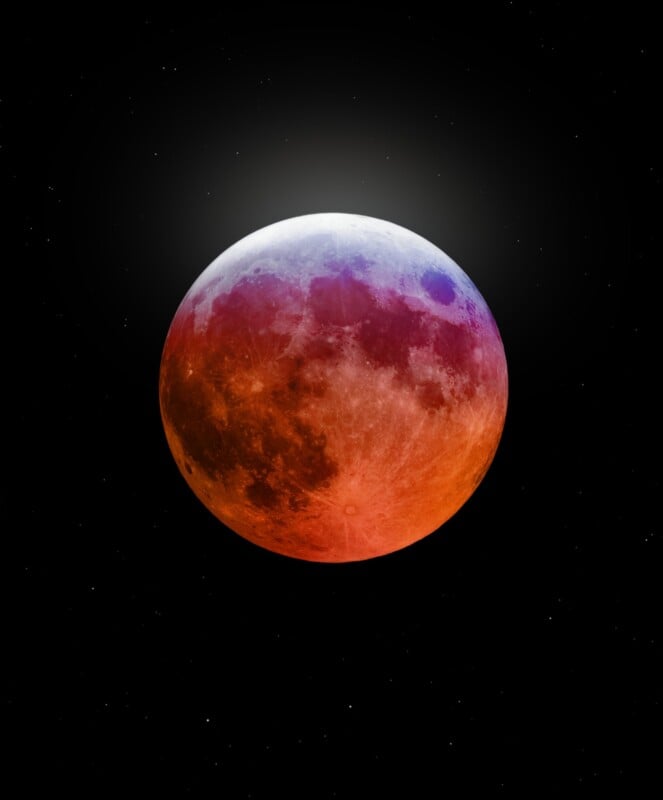One-of-a-Kind Lunar Eclipse Photo Tracks the Moon Traveling in Front of the Stars

With the upcoming blood moon eclipse this weekend, astrophotographer Andrew McCarthy has revealed a unique image he took during the last total lunar eclipse earlier this year.
McCarthy’s unique image is actually a stack of thousands of photos taken by two separate telescopes — one for the Moon’s details and one to capture a wider field-of-view.
“I wanted to capture the Moon in more detail than what was possible with the smaller telescope that was capturing the starfield, so it was capturing the eclipse simultaneously,” McCarthy tells PetaPixel. “The resulting image is much higher resolution than otherwise possible thanks to this approach.”

But to get the effect of the star trails behind, McCarthy had to track the Moon’s drift over the course of the eclipse, which lasted four hours.
“Unlike star trails that are visible when leaving a camera stationary that captures the movement of the Earth, this camera was tracking the lunar motion to create star trails that specifically document the lunar movement,” McCarthy says.
“I used a German equatorial mount,” McCarthy says of the setup he used to track the Moon. “Modern tracking mounts have the ability to adjust the tracking speed specifically to track for the ‘lunar rate’ as opposed to the sidereal rate that compensates for the motion of the stars (the result of Earth’s rotation). Tracking on the Moon instead of the stars was as simple as clicking a button!”

To everyone on Earth, the Moon rises in the east and sets in the west because Earth’s rotation is far faster than the Moon’s orbital motion. But relative to the stars, the Moon travels west to east, known as proper motion, which is the movement that McCarthy captured in his image. The stars themselves appear in different colors because of their own characteristics; the age and size of the star.”
McCarthy shot the image from his backyard in Arizona on March 13. He says he has no plans to cover this weekend’s eclipse since it is happening on the other side of the world — but he’s not ruling out hopping on a last minute airplane just yet.
More of McCarthy’s work can be found on his Instagram, X, Facebook, and website.
Image credits: All photos by Andrew McCarthy.